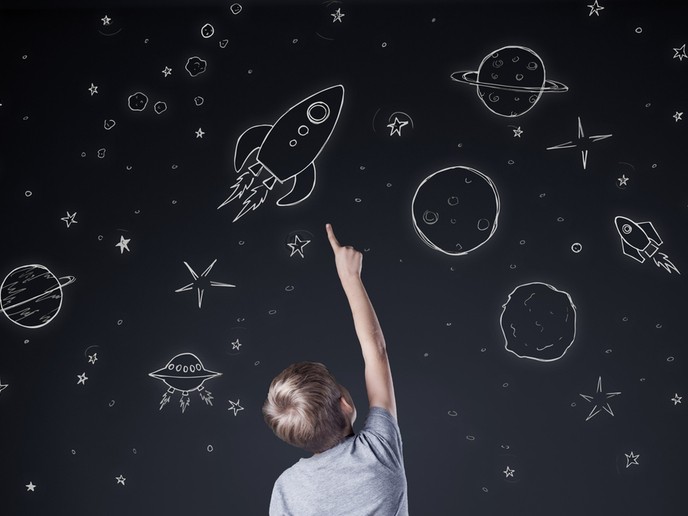European youth encouraged to reach for the stars
The EU-funded EUSPACE-AWE(opens in new window) (EU SPACE AWARENESS) project engaged with children and teenagers both directly and indirectly to make space studies and science and technology more appealing. Efforts and actions centred on wide-ranging activities and high-quality educational resources for diverse groups that play an influential role in career decisions. Project work targeted “a better understanding of the career aspirations of space-related workers, the vision that children have of space and space science, and the identification of best practices towards stimulating the next generations of space scientists,” says Professor George Miley, who co-coordinated the project with Prof. Pedro Russo, both from the Leiden Observatory, Leiden University, the Netherlands. Reaching far and wide Through its dissemination and partner network, spanning 23 countries, EUSPACE-AWE succeeded in directly reaching over 70 000 people, including more than 4 000 students and 5 000 education professionals. A total of 34 face-to-face teacher training courses were held in 15 countries, helping to enhance the work of close to 500 teachers and education experts. Furthermore, 2 401 teachers from 68 countries participated in and completed the professional training of at least one massive open online course. Project partners hosted a 5-day International Space Education conference in 2016. Organised in collaboration with the European Space Agency and the Galileo Teacher Training Programme, the event brought in 100 professional educators, engaging them through presentations and workshops. They also hosted two 6-day summer schools in July 2016 and 2017 in Marathon, Greece. Involving some 50 teachers, these courses also helped EUSPACE-AWE to assess the impact of its developed materials. In line with the project’s high-priority approach to professional evaluation and sustainability, other outreach activities included high-impact events for teachers and policymakers at the European Parliament. Knowledge frontiers extended The project team has provided a repository of innovative peer-reviewed educational resources, all accessible through the EUSPACE-AWE website. A dedicated career hub offers information on opportunities in space exploration and the career potential it represents, and two toolkits highlight aspects of the Galileo and Copernicus satellites. The ‘Journey of Ideas’ resource helps build a bridge between Islamic culture and Latin Europe by highlighting important contributions to scientific progress from Islamic scientists. Another resource developed by the project is Space Scoop(opens in new window), a space news service for children from the age of 8 and up. This is an engaging tool that can be used in the classroom environment. It has also been showcased(opens in new window) on the Universe Awareness website of the FP7 project EU-UNAWE. A series of videos(opens in new window) is also available online, including one titled ‘Inspiring Every Child with our Wonderful Cosmos’(opens in new window). EUSPACE-AWE held a total of 160 events through its network, which comprises 14 formal nodes, 4 partner nodes and 6 informal organisations. Over 100 of these were public events and more than 40 focused on education professionals’ development in the use of space in the classroom. The Science Diplomacy and International Development symposium marked the closing of the project. New launches in the works As Prof. Miley states, “space research and knowledge about our universe are inspirational and exciting. Many scientists and engineers became interested in their disciplines through their early exposure to the fascinating world of space.” It’s not surprising then, that EUSPACE-AWE partners believe “education and outreach programmes that exploit space science are excellent value for money.” Project outcomes clearly mirror this through the extensive efforts of its international network and the myriad, all-encompassing resources it has provided for young Europeans and all those involved in their educational journey. The journey doesn’t end here. “We regard it as essential that our networks and extensive educational repositories be sustained,” the professor concludes. “We have begun taking initiatives to ensure this, including submitting a new proposal, SpaceEDU, to the Horizon 2000 Space Call.”



